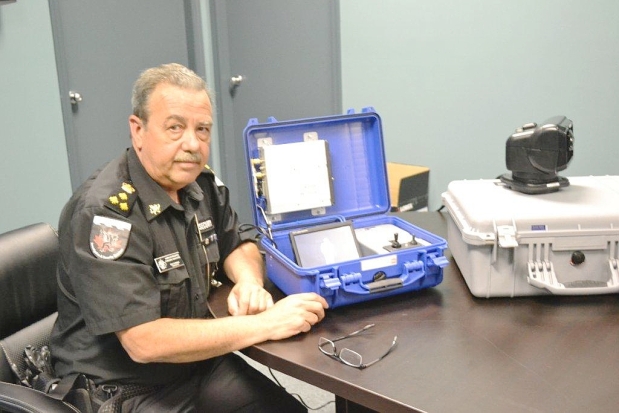
July 2011
VANCOUVER — Law-breaking tenants beware: B.C. landlords now have access to infrared technology to keep an eye on you.
A Chilliwack, B.C.-based security firm is offering monthly surveillance of properties using a FLIR infrared camera. The technology can detect excess heat from homes — a key signature of a grow-operation.
“Out in the (Fraser) Valley especially, the landlords are having a heck of a time with grow-ops,” said Brian Goldstone, a retired RCMP officer who is now the CEO of Griffin Investigation and Security Services Inc. “Grow-ops destroy the house, causing black mould, and the insurance won’t cover them.”
FLIR cameras, like their car-mounted $14,000 Owl Vision model, “take a thermal image of the property and from that, we can tell whether or not there is an anomaly, which could be a grow-op,” he said. “Because of the amount of lamps they are using, the house is hotter than the norm.”
After spotting such an anomaly, a landlord would then have cause to do a home inspection.
Goldstone said that Griffin’s FLIR unit is similar to that used on police helicopters, but much smaller, so it can’t see through windows, giving it the advantage of maintaining some of the tenant’s privacy.
“It gives us the heat signature of a house, but it can’t show you people walking around in the house. That’s very important. We don’t want to get into privacy issues.”
Increasingly, Lower Mainland municipalities are holding landlords responsible for cleanup costs incurred during grow-op busts in their properties.
Chilliwack’s Nuisance, Noxious or Offensive Trades, Health and Safety Bylaw, for example, has collected hundreds of thousands of dollars in fines and fees. Under the bylaw, landlords must inspect their properties for illegal activities every three months.
“Because of the ways cities are going after them now, landlords have to show they’ve done due diligence,” Goldstone said. “This is a quick and easy way to do it.”
Goldstone said the service also acts as a preventive measure: If tenants are aware a landlord is doing infrared scans, they are less likely to set up shop.
“It really is a deterrent,” Goldstone said.
Last year, RCMP report there were 32 grow-ops dismantled in Chilliwack, with 20 trafficking charges, 11 arrests for hydro theft and 22 arrests for production.
“There are a lot more tips coming in from the public than we’ve had in the past. I think the awareness has grown,” said Const. Tracy Wolbeck of the RCMP’s Upper Fraser Valley Regional Detachment.
In April, Chilliwack RCMP made their second-largest grow-op bust ever, seizing 5,000 plants at a residence. In May, a residence was busted and seven people arrested. That residence was rented out and had been busted for a previous grow-op on site in 2004.







